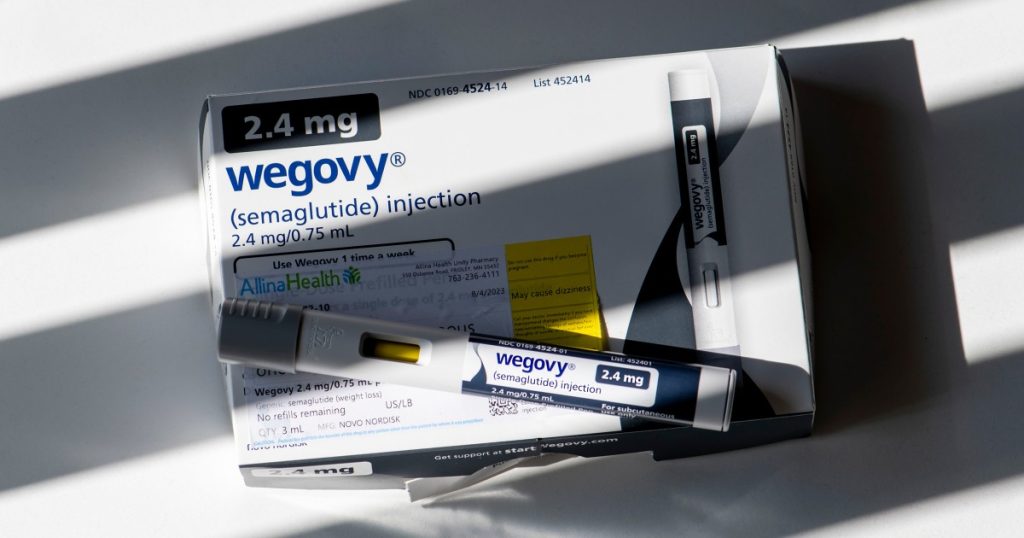Medicare recently announced that it will cover the weight-loss drug Wegovy for some recipients with heart disease risk, potentially increasing the cost of monthly premiums for the 65 million adults enrolled in the federal health insurance program. The price jump is currently unknown but will depend on how many qualify for the medication, which is priced at around $1,300 a month. Experts warn that premiums could increase as soon as 2025, posing concerns for Medicare funds over the next decade. The drug will be covered under Medicare Part D, which pays for prescription drugs people take at home.
Last year, more than 50 million of Medicare’s enrollees used Part D plans, paying an average monthly premium of $55.50. Patients are responsible for 25% copays after reaching a certain out-of-pocket limit. Part D plans are provided by private insurance companies, some of which have already announced coverage for Wegovy for patients with heart disease risk. Under CMS guidelines, Wegovy can only be prescribed to people with heart disease who are overweight or obese, not for weight loss alone. It’s estimated that several million people on Medicare may meet these criteria.
Rising premiums linked to Wegovy are unlikely to happen in the next year as insurers have already locked in payment rates with Medicare for 2025 enrollment. However, premiums could increase in 2026 or beyond if projections show higher costs than expected. The cost of the diabetes drug Ozempic, which shares an active ingredient with Wegovy, increased dramatically after Medicare began covering it in 2018. Any premium increase caused by Wegovy could have a significant impact on Medicare beneficiaries, many of whom are retired with limited incomes.
Insurers providing Part D coverage may establish rules before covering Wegovy, limiting access and potentially keeping premiums low. These rules may include step therapy, requiring patients to try lower-cost medications before more expensive options, and prior authorization, which can be a burdensome process for providers and patients. While insurance companies often face criticism for limiting access, Novo Nordisk may also be to blame for the high cost of Wegovy. Senator Bernie Sanders has called on the drugmaker to lower prices, as studies have shown the drug could cost less than $5 to make. Medicare drug pricing negotiations could lead to lower costs under the Inflation Reduction Act.
Ultimately, the coverage of Wegovy under Medicare Part D may lead to increased premiums for beneficiaries, with the potential rise likely to occur in 2026 or beyond. The high cost of the drug and potential restrictions on access could impact how many people are able to benefit from this treatment option. Efforts to negotiate better rebates or lower prices for Wegovy could help mitigate the financial impact on both beneficiaries and Medicare as a whole. These developments highlight the need for cost-effective solutions in healthcare to ensure access to necessary medications while also managing the financial sustainability of the healthcare system.


